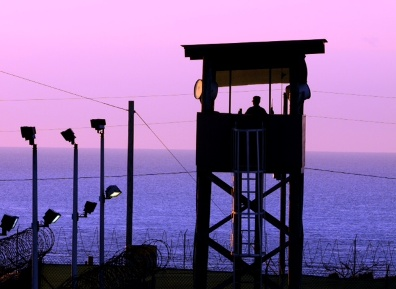The Guantánamo Public Memory Project is a multi-year collaborative public history project that seeks to build public awareness of the long history of the U.S. naval station at Guantánamo Bay, Cuba, and foster dialogue on its current uses and possible futures for the site. Launched in 2009 from the International Coalition of Sites of Conscience in conjunction with Columbia University’s Institute for the Study of Human Rights, the Project entails a growing collaboration of universities, organizations, and individuals. Historians Liz Ševčenko and Patrick Moore will discuss the project’s goals, activities, and outcomes, especially emphasizing the role of oral history as a means of collecting and sharing new stories about the Guantánamo Bay Naval Station. From 2011-2014, Ševčenko, Moore, and teams of students and faculty from more than a dozen universities worked with people who lived, worked, served, or were held at GTMO — as well as with journalists, lawyers, human rights activists, artists, and museum professionals — to encourage community conversations about the US base and consider its relevance to numerous issues including national security, militarism, immigration, public health, and incarceration.
Liz Ševčenko was the founding director of the Guantanamo Public Memory Project. She also was founding director of the International Coalition of Sites of Conscience, a network of historic sites that foster public dialogue on pressing contemporary issues. As Coalition Director, Ševčenko worked with initiatives in more than 60 countries to design replicable programs and practices that reflect on past struggles and inspire citizens to become involved in addressing their contemporary legacies. She is currently co-director of the Humanities Action Lab at the New School, and director of its Global Dialogues on Incarceration.
Patrick Moore is the current president of the National Council on Public History and the founder and director of the Public History Program at the University of West Florida. Professor Moore and his colleagues at UWF developed the mobile app Next Exit History™, a GPS-based system that provides iPhone and Android smartphone users with on-site historic information that Moore takes on the road in conjunction with his UWF summer travel courses on Route 66, Civil Rights, and the Lewis and Clark expedition. Moore’s other notable projects include a study of Cuban commuters and exiles at the Guantanamo Bay Naval Base, as well as an assessment of Hurricane Katrina’s impact on Gulf Coast fishing communities. As a fellow at the Kennedy Space Center, Moore helped create an oral history and knowledge-mapping program and is in the final edits of an oral history-based manuscript titled Voices From the Cape.

